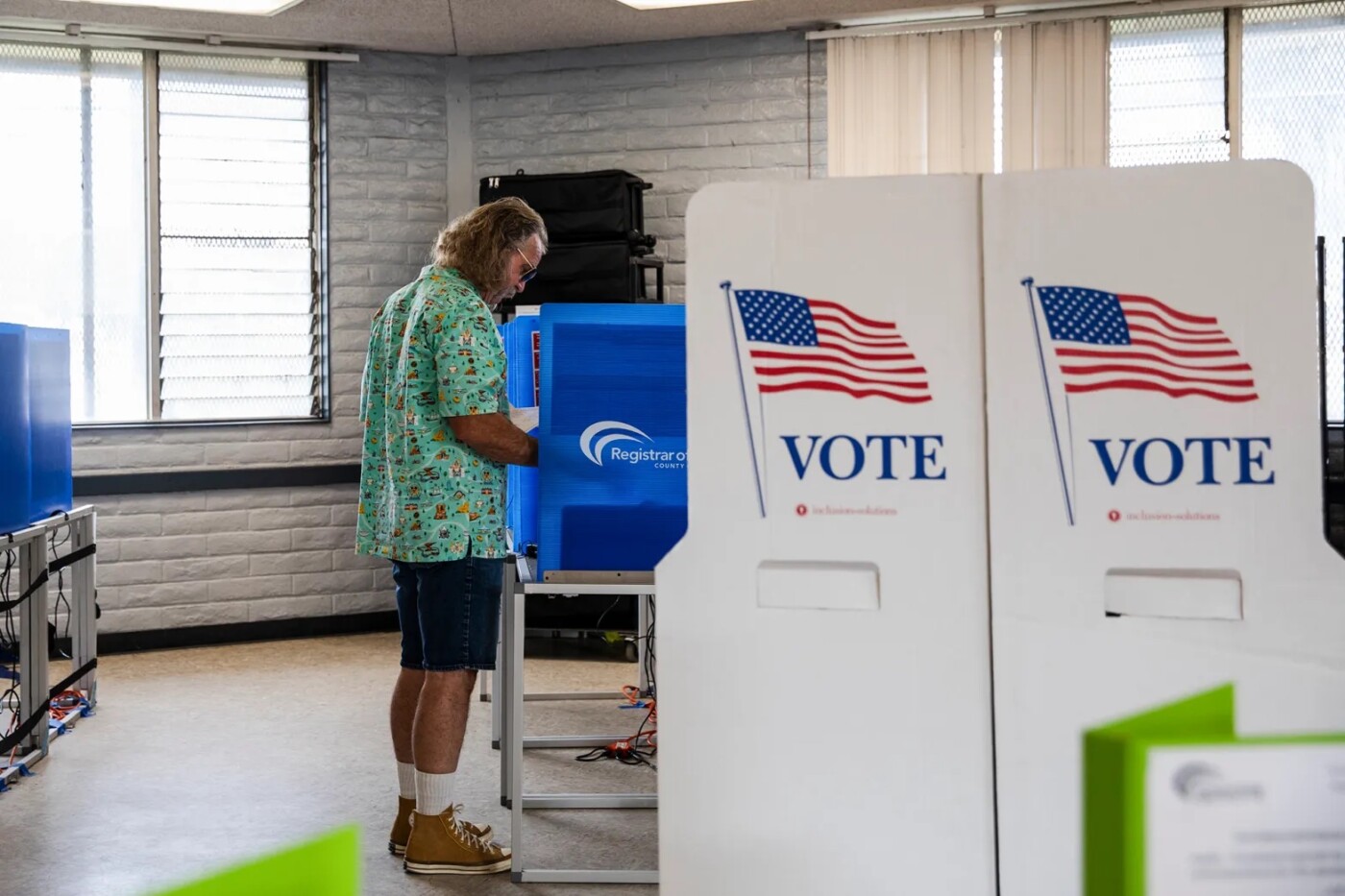While there’s still time for a surge of ballots before March 5, it looks that way so far, political analyst Paul Mitchell writes for Capitol Weekly. As of Saturday, 7% of 22 million ballots had been returned. Compared to the same point in 2022, voters have returned 250,000 fewer ballots. The turnout in that year’s June primary was 33%.
- Mitchell: “We are staring at a potential for a sub-30% turnout election. Lowest share of registered voters ever in a presidential primary?”
The previous low in a presidential primary is 31% in 2012, when President Barack Obama was breezing to renomination. But even a 30% turnout this year would still mean many more actual voters, since there are 5 million more registered voters in 2024 than in 2012.
This year, President Joe Biden is basically unopposed on the Democratic side, and former President Donald Trump is way ahead in the polls among Republicans. In the far more dramatic presidential primary they both contested in March 2020, 47% of registered voters cast ballots.
One candidate hoping for a bigger turnout is Rep. Barbara Lee, who is stuck in fourth place in the polls for the U.S. Senate and is counting on a late surge of young and progressive voters (with five rallies this week) to have a shot at the top two. But so far, only 2% of 18-to-34-year-old voters have turned in ballots, compared to 15% for voters 65 and older, according to Mitchell.
CalMatters reporters sat down with Lee for an hour last week. While she acknowledged that her campaign has not raised as much cash as her two Democratic opponents, Lee said that she is “not of the establishment, per se” and that her voting record speaks to “the majority of Californians who are struggling.” She also pointed to her history of pushing the envelope “early on” — such as casting the lone vote against the Afghanistan War in 2001, and being one of the first members of Congress to co-sponsor a 2017 resolution to impeach then-President Trump. Said Lee: “I step out there, and sooner or later, folks fall in line.”
Read more of the interview highlights from CalMatters politics reporter Yue Stella Yu.
Also, the Secretary of State’s office has released the list of 22 write-in candidates whose votes will count, including five for U.S. Senate.
In other election news:
Voters have questions: How can you get your vote counted faster? How are the presidential primary rules different? At CalMatters, we try to answer your election questions — many about local judicial races. But as Calmatters’ Capitol reporter Sameea Kamal explains, it’s difficult to find information about those candidates. A few resources Sameea found:
- County bar associations: Some local bar associations publish evaluations and ratings based on candidates’ past cases, disciplinary issues and professional references. The State Bar Association’s website may also have some of this information.
- Local news sources: In Southern California, for example, LAist has voter guides for judges running in Los Angeles and Orange counties. In the Bay Area, the San Francisco Chronicle includes superior court judges in its voter guide and list of endorsements.
- County elections office websites: Because candidates are required to file disclosure forms, check out your local elections office website to see how much money these candidates raised and from whom.
S.F. ballot measure: And a proposal to expand drone use by S.F. police officers has digital and civil rights advocates concerned, writes CalMatters tech reporter Khari Johnson. In March, the city’s residents will decide on Proposition E, which would loosen restrictions on police over their use of surveillance technology, and allow them to use drones in high-speed vehicle chases. Prop. E supporters say drones may reduce injuries by decreasing the number of police vehicles involved. But opponents argue that the measure rolls back valuable police reforms and could encourage lawmakers to consider policies that grant police more authority about tech adoption.
Time to vote: CalMatters’ comprehensive March 5 primary Voter Guide has what you need to know on Prop. 1, the U.S. Senate, U.S. House, state Senate and Assembly races, and answers to your questions.
